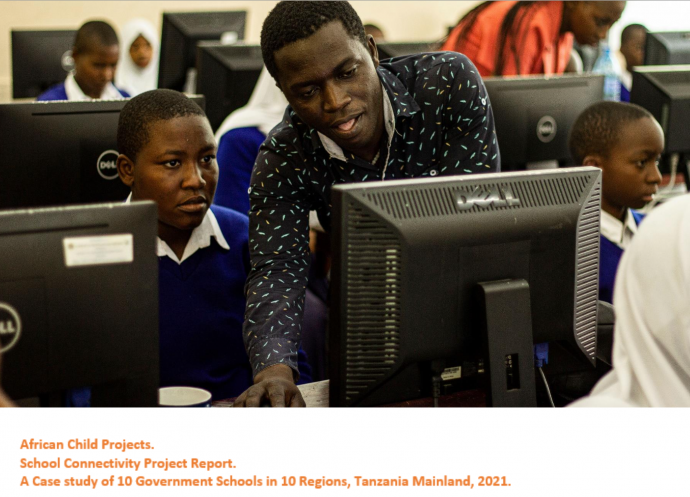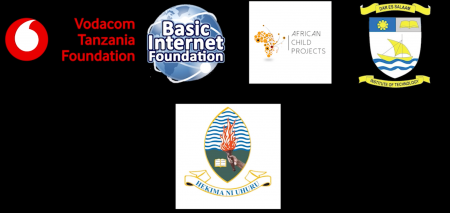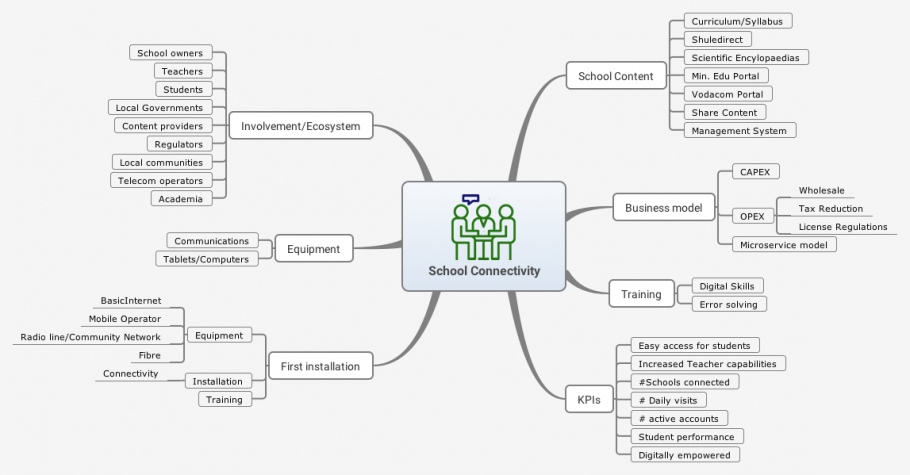School Connectivity TZ
| Wiki for ITS | ||||||
|---|---|---|---|---|---|---|
|
| Project: School Connectivity TZ |
|---|
| Feasibility of sustainable School Connectivity in Tanzania |
| Web: | |
|---|---|
| Project leader | Catherine R. Kimambo |
| Project Participants | Josef.Noll, Catherine R. Kimambo, Brenda Jimris-Rekve, Wisam Ahmed Mansour |
| Start Date | 2020/08/05 |
| End Date | 2022/12/01 |
| Supported by | Own |
| Objective | Demonstrate the feasibility of connectivity |
| Research Domain | 5G Networks, Internet - IoPTS |
| Keywords | School Connectivity |
Factpage of Project School Connectivity TZ
Equipment used in project: School Connectivity TZ/Equipment
Final Report on School Connectivity in TZ - Phase II (Oct 2022)
See video File:50Schools connected TZ 2022.mp4
Final Report School Connectivity TZ (May2021)
See the video presenting the results: https://vimeo.com/560893878

Catherine R. Kimambo from African Child established the School Connectivity pilot project (“SchoolConnect”), connected 10 government secondary schools in urban and rural Tanzania as a collaborative project involving
- Public actors including as UCSAF, MCIT, Tamisemi, and CosTech,
- Telecom operators TTCL, Vodacom and Halotel
- NGOs and SMEs including Shuledirect, African Child, and Basic Internet Foundation.
The main focus of the School Connectivity project was to demonstrate the feasibility for an OPEX of less than 20 USD/month for the connectivity. The solution for connectivity provides the Internet through the mobile network, with a reliable school server providing students with a digital education platform, as well as connection to “Internet Lite”. The success of this program, together with the experiences from school connectivity through other programs, will create the proof of concept that connectivity of schools is affordable, and at the same time demonstrate the importance of the Internet in advancing the education system in Tanzania and urge the incorporation of digital education as part of the learning curriculum to improve the quality of education in secondary schools across Tanzania.
Success story Catherine R. Kimambo presenting to mobile operators
| Thumb | Title | Keywords | Date | Author/Project |
|---|---|---|---|---|
 |
School Connectivity TZ Status Apr2021 Click to Open SchoolConnectivity TZ 8Apr2021 |
School Connectivity | 8 April 2021 | Catherine R. Kimambo |
See presentation by Catherine R. Kimambo at the School Connectivity kick-off
| Thumb | Title | Keywords | Date | Author/Project |
|---|---|---|---|---|
 |
DigI:School Connectivity project Click to Open Kick-off School Connectivity TZ Aug2020 |
School Connectivity | 5 August 2020 | Catherine R. Kimambo |
Main achievements:
- Provide free access to educational contents,
- Establish a local education infrastructure for internet access,
- Drive the dialogue around Meaningful connectivity in Tanzania,
- Provide capacity building to the teachers and
- Establish digital learning platforms in 10 schools located in Morogoro, Tanga, Dodoma, Manyara, Kilimanjaro, Musoma, Tabora, Katavi, Ruvuma and Kigoma (across Tanzania)
We want to advance school connectivity to become a national strategy and we believe each region among the 10 selected has its own factor that affects connectivity positively and negatively and these factors can affect the mapping and connecting. Knowing these factors earlier will prove effective when deploying the program on a national scale.
Provide the status for the School Connectivity project in Tanzania and discuss follow-up. These notes from the meeting may serve as input for the high-level guidelines and national framework, to be established by MCIT.
- 10 schools in 10 areas connected
- Excellent cooperation with local governments, resulting in local involvement
- Good synergy between actors, including Vodacom Tanzania Foundation, UCSAF, TTCL, Shuledirect, Tamisemi, African Child Projects, BasicInternet
- Integrated approach covering (i) Connectivity even in an area with bad mobile coverage, (ii) local content on the school server for enhanced Quality of experience, (iii) training for school teachers and students, and (iv) business model for sustainability
- Established key performance indicators (KPI), though only qualitative assessment foreseen
KPI framework for School Connectivitiy (.pdf)
Meetings
School Connectivity TZ related Meeting(s):- AHERI Conference 2022 (onThis property is a special property in this wiki. 4 November 2022)
- African IGF 2022 (onThis property is a special property in this wiki. 19 July 2022)
- African Child-Tanzania development trust-BasicInternet (onThis property is a special property in this wiki. 24 February 2022)
- Tanzania Community Networks School of Internet Governance (TZCNSIG 2021) (onThis property is a special property in this wiki. 6 December 2021)
- Update UNICEF RW - Basic Internet Oct2021 (onThis property is a special property in this wiki. 13 October 2021)
- ... further results

